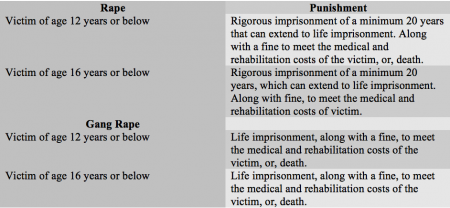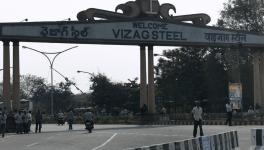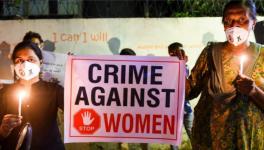Will the Criminal Law (Amendment) Bill Make a Difference?

Parliament passed the Criminal Law (Amendment) Bill, 2018 yesterday. The Bill was passed to replace the Criminal Law (Amendment) Ordinance, 2018, which was promulgated following the Kathua rape. The Ordinance had amended the Indian Penal Code (IPC), the Code of Criminal Procedure (CrPC), the Indian Evidence Act and the Protection of Children from Sexual Offences Act (POCSO). The same amendments are now going to be written into the law.
Read More: BJP has Prepared a Band of 'Rapist Rakshaks': Brinda Karat
The Ordinance itself had been criticised as a 'red-herring' being dangled in front of the enraged public. The flaw in the mode of thinking was that rape cases already have a low conviction rate. Thus, even if one were to enhance the punishment for rape irrespective of how old the victim was, it would not positively affect the conviction rate.
Amendments to the IPC
The IPC, being a substantive law, defines criminal offences and prescribes punishments for them. Under the existing law, rape was punishable with rigorous imprisonment of seven years up to life imprisonment, along with fine. Under the Ordinance and now the Amendment Bill, the minimum sentence has been enhanced to rigorous imprisonment of 10 years. The Ordinance also created new offences under the broad category of rape which depend on the age of the victim.

What one can see in all the amendments is that the provisions regarding punishment have been enhanced. The issue however, is that India has a body of jurisprudence regarding the death penalty. It is established that the death penalty can be awarded only in the 'rarest of rare' cases, implying that the punishment should be used 'sparingly'. In the case of rape and gang rape of minor girls, data has shown that in 95 per cent of the cases, the perpetrator was known to the victim, and often is a relative. This would result in the family being most unwilling to see their relative hang despite how despicable the deed was. Hence, an enhanced punishment may actually hamper the investigation.
Amendments to the CrPC
The existing law in the CrPC stated that the investigation into the rape of a child must be completed within three months. The Ordinance reduced the time period for investigation to two months and extended it to all forms of rape. The Ordinance further denies applying the provisions for anticipatory bail to rape and gang rape of girls below 16 years and 12 years. Under the Ordinance, all appeals on sentences in rape cases must be disposed within six months. The Ordinance also extends the provisions for compensation and free medical treatment to the rape and gang rape of minor girls below 16 years and 12 years of age. Sanction of the government was previously mandated for all offences involving public servants with the exception of offences like rape. The amendment now includes rape and gang rape of girls below 16 years and 12 years of age.
Also Read : Laws Still Protect Perpetrators of Sexual Violence in J&K, Can Kathua Change what Nirbhaya Couldn’t?
Irrespective of whether the safeguard of sanction is taken away or not, the big lacunae is the operation of sanction when the offence has been committed by a person in uniform in an area under the Armed Forces Special Powers Act (AFSPA). The big challenge has come in the case of Major Aditya where his father has challenged the registration of a First Information Report (FIR) stating that sanction is required. It is only after the FIR is registered that an investigation can take place. The petition was filed in the Supreme Court and is pending. Though the matter does not relate to rape, the decision of the Court will have consequences on the application of these amendments to the CrPC.
Amendments to the Evidence Act
The Evidence Act contains a provision which makes the past character of the victim irrelevant in determining whether an act was consensual or not. The present amendment extends this to the rape and gang rape of minor girls of sixteen years and twelve years.
Amendments to POCSO
Under the POCSO, the punishment for rape was rigorous imprisonment of seven years, which can extend to life imprisonment and a fine. For minors below 12 years of age, the punishment was rigorous imprisonment of 10 years which can extend to life imprisonment and a fine. The amendment states that for such offences, the more severe punishment between the IPC and the POCSO will apply.
What is ironic is the knee-jerk response of the government seems to only treat the symptoms without addressing the malady. It has been argued that effectively implementing the existing law will be a greater deterrent than an enhanced punishment.
Read More: Child Rape: Modi’s Death Penalty Ordinance Is A Gimmick
Get the latest reports & analysis with people's perspective on Protests, movements & deep analytical videos, discussions of the current affairs in your Telegram app. Subscribe to NewsClick's Telegram channel & get Real-Time updates on stories, as they get published on our website.
























